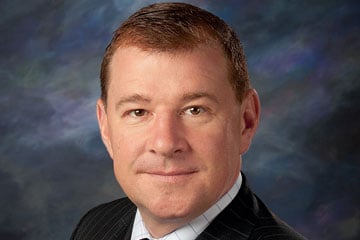
The Competition Bureau of Canada has appointed Matthew Boswell to commissioner of competition, a man with an eye toward Big Data, intellectual property, innovation and the digital economy.

The Competition Bureau of Canada has appointed Matthew Boswell to commissioner of competition, a man with an eye toward Big Data, intellectual property, innovation and the digital economy.
Boswell has spent a year in the interim commissioner role since John Pecman stepped down in May of last year. Prior to joining the competition bureau in 2011, Boswell served as an assistant Crown attorney in Toronto before becoming senior litigation counsel in the enforcement branch at the Ontario Securities Commission, where he focused on securities fraud.
“Given that much of commissioner Boswell’s career has been spent as a prosecutor, it would not surprise me to see a greater emphasis on finding and bringing merger or abuse cases, especially in support of the Bureau’s innovation agenda,” says Nikiforos Iatrou, a litigator and partner in McCarthy Tétrault LLP’s competition and foreign investment group.
As Boswell has been in senior management at the bureau throughout his predecessor’s term, Iatrou says he expects to see a consistency in the overall approach, which includes a focus on filling gaps in innovation and addressing Big Data.
“I think what we can expect is a continuation of the bureau’s policy efforts regarding those issues, which are interesting, not just in the Canadian competition sphere but in the international competition law community and indeed with the public at large,” says David Rosner, a partner at Goodmans LLP and member of the competition, antitrust and foreign investment group.
“We can anticipate further energy on the policy development front and we can anticipate that some of these policies that are in different phases of development will be matured and issued formally under Matt’s reign, over the next little while,” Rosner says.
Boswell was appointed March 5 and will serve a five-year term. He has been with the competition bureau since January 2011, first serving as associate deputy commissioner for criminal matters, moving in 2012 to senior deputy commissioner for cartels and deceptive marketing and then in 2017 spent one year as senior deputy commissioner for mergers and monopolistic practices. He has been interim commissioner since May 30, 2018.
Antonio Di Domenico, a partner and co-leader at the antitrust, competition and marketing group at Fasken Martineau DuMoulin LLP, says that Boswell’s appointment will be greeted warmly by the competition bar.
“It’s a welcome appointment among the competition bar, having regard to Matthew’s vast experience in the area and, in particular, his vast experience in all the enforcement branches within the competition bureau,” says Di Domenico. “[Boswell] is known to be tough but a very good communicator and very practical with respect to his analysis of competition law problems and his judgment on moving those issues forward.”
Boswell has spoken about mending the relationship between the competition bureau and the prosecutors who pursue its cases, Iatrou says, adding that, if he’s successful in this, there could be an increase in cartel prosecutions under his watch.
“He got off on the right foot by having the director of the public prosecutions service formally sign on to the new immunity and leniency programs, and time will tell whether — from a Canadian perspective — that will help to buck the international trend of declining immunity applications and cartel enforcement,” Iatrou says.
Last October, in a speech at the Global Series in Ottawa, Boswell raised the fact that Canada ranked just 17 out of 47 high-income countries in terms of innovation, scoring low on knowledge and technology outputs, business sophistication and creative outputs, according to the Global Innovation Index.
“So for the Bureau, our innovation focus is on building our knowledge base and strengthening our enforcement capacity,” he said. “Conduct or mergers that may harm competition are like roadblocks that could hold back innovation.”
Boswell also spoke about the need to design regulation that spurs rather than hinders innovation, referring to the sharing economy as a phenomenon regulators should embrace as a generator of greater competition, noting that in some jurisdictions, municipalities and taxi services were still fighting to keep Uber and Lyft out of the market.
“As an advocate for competition, the Bureau urges regulators to recognize the sharing economy as a golden opportunity to bring greater competition to Canada’s marketplace. . . . Sometimes, resistance is futile,” he said.
Rosner says he expects Boswell to continue on the same track the bureau has been on with the sharing — aka gig — economy.
“We fully anticipate that the Bureau will continue to advocate for regulation that is minimal and permits new business models to attempt entry and that doesn’t favour either existing or older business models,” he says.